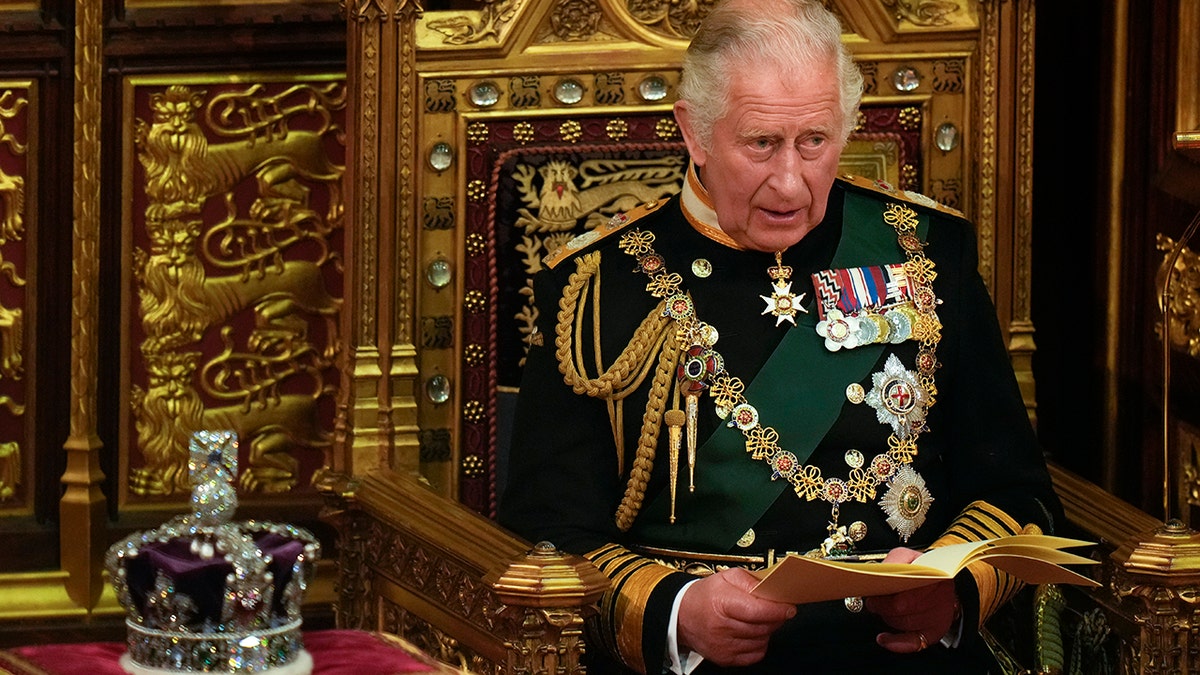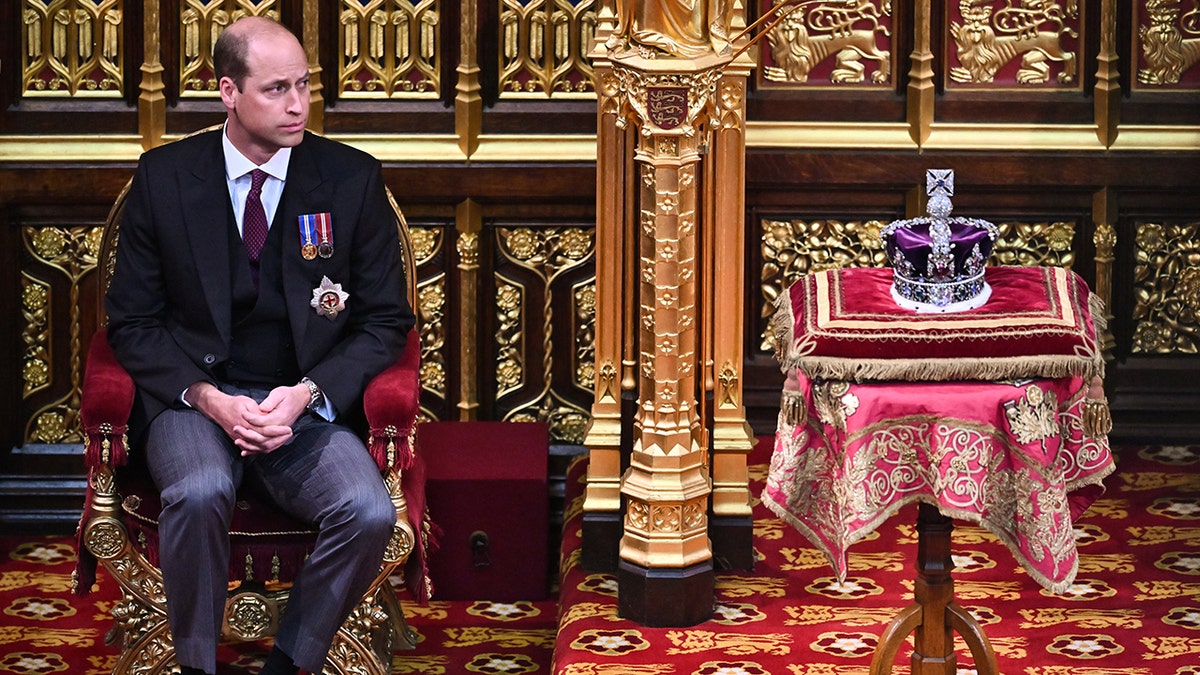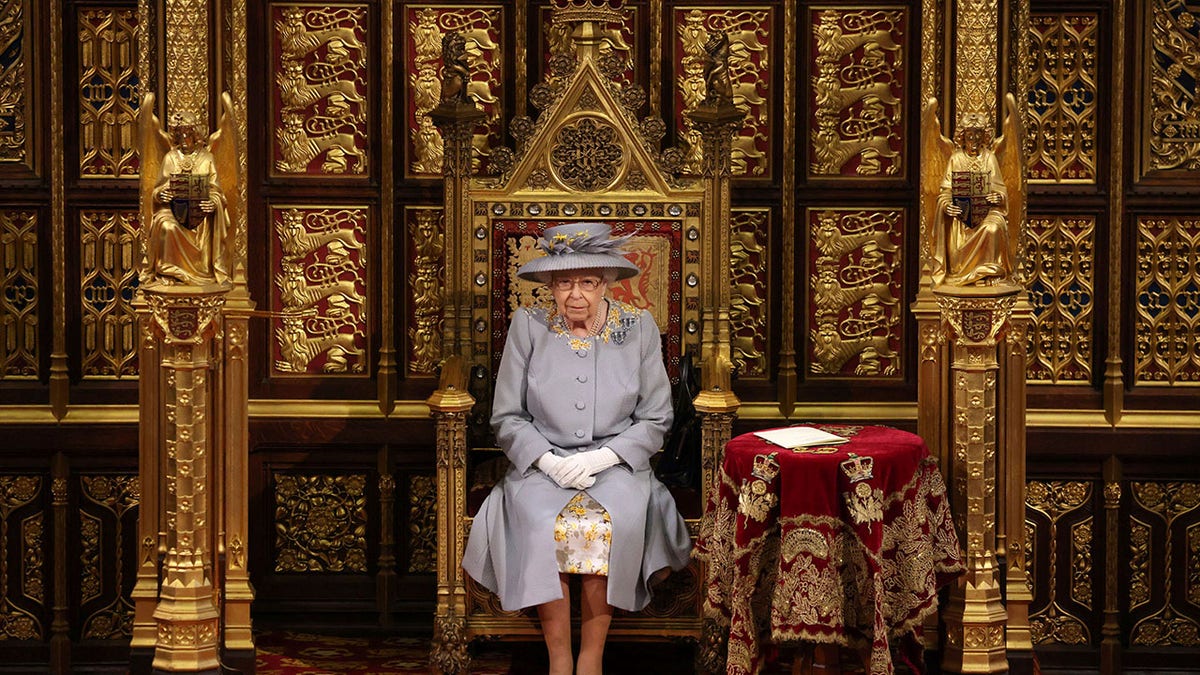Fox News Flash top entertainment headlines 5/9
Fox News Flash top entertainment and celebrity headlines are here. Check out what clicked this week in entertainment.
Britain’s Conservative government made sweeping promises to cut crime, improve health care and revive the U.K.'s pandemic-scarred economy as it laid out its plans for the next year in a tradition-steeped ceremony in Parliament – but without Queen Elizabeth II, who was absent for the first time in six decades.
The 96-year-old monarch pulled out of reading the Queen's Speech at the ceremonial opening of Parliament because of what Buckingham Palace calls "episodic mobility issues." Her son and heir, Prince Charles, stood in, rattling through a short speech laying out 38 bills the government plans to pass.
The speech, which is written by the government, promised Prime Minister Boris Johnson’s administration would "grow and strengthen the economy and help ease the cost of living for families." But there were few immediate measures to relieve households struggling with soaring prices for domestic energy and food.
Johnson said in a written introduction that the coronavirus pandemic and Russia's war in Ukraine had created "huge disruptions to the global economy." But he warned that "no government can realistically shield everyone from the impact."

Prince Charles reads the Queen's speech next to her Imperial State Crown in the House of Lords Chamber, during the State Opening of Parliament at the Palace of Westminster on May 10, 2022, in London, England. (Alastair Grant - WPA Pool/Getty Images)
The government announced plans to invest in railways and other infrastructure, create a U.K. infrastructure bank and "level up" economic opportunity to poorer regions, as well as bills on education and health care funding.
The speech also promised laws aimed at pleasing the government’s right-leaning voter base, including promises to seize "Brexit freedoms" by cutting red tape for businesses and overhauling financial services and data regulation now that Britain has left the European Union.
Some of the plans are already strongly criticized by opposition parties and civil liberties groups, including a contentious new law to outlaw disruptive protest tactics favored by groups such as Extinction Rebellion.
Human rights groups also have criticized plans for a British Bill of Rights to replace current rights laws based on the European Convention on Human Rights. Some environmentalists worry that a bill to allow "precision bred plants and animals" opens the door to genetically modified food, which is currently banned.
CLICK HERE TO SIGN UP FOR THE ENTERTAINMENT NEWSLETTER

Prince Charles processes along the Royal gallery during the ceremonial state opening of Parliament at the Palace of Westminster on May 10, 2022, in London, England. (Richard Pohle - WPA Pool/Getty Images)
Rebecca Newsom of Greenpeace U.K. said the government was pandering to the "whims" of Conservative backbenchers while offering "not a single extra penny of support for households struggling with energy bills."
Russia’s invasion of Ukraine, which has upended the European security order, was reflected in plans to beef up spying laws, introduce a U.S.-style "foreign influence registration scheme" and toughen money-laundering laws – though the mild-sounding measures are unlikely to eradicate London’s reputation as a hub for ill-gotten gains.
Despite rumors beforehand, there was no legislation to alter post-Brexit trading arrangements for Northern Ireland, a move that would worsen already tense relations between Britain and the EU. But the government hinted it could act, stressing the importance of the "internal economic bonds" between all parts of the U.K., a key theme for Northern Ireland’s British unionists.
Johnson’s Conservatives hold 358 of the 650 seats in the House of Commons, which should ensure easy passage of all its legislation. But it has been repeatedly derailed by ethics scandals and internal Conservative dissent.
CLICK HERE TO GET THE FOX NEWS APP

Prince William, Duke of Cambridge, sits by The Imperial State Crown in the House of Lords Chamber, during the State Opening of Parliament at the Palace of Westminster on May 10, 2022, in London, England. (Ben Stansall - WPA Pool/Getty Images)
The opening of a new session of Parliament came days after Johnson’s Conservatives suffered a drubbing in local elections across the U.K.
Johnson’s personal popularity has been hurt by months of headlines over parties in his office and other government buildings that breached coronavirus restrictions. The prime minister was fined 50 pounds ($62) by police last month for attending his own surprise birthday party in June 2020 when lockdown rules barred social gatherings.
Johnson has apologized, but denies knowingly breaking the rules. He faces the possibility of more fines over other parties, a parliamentary investigation into whether he misled lawmakers about his behavior, and a possible no-confidence vote from his own lawmakers.
The parliamentary opening ceremony is a spectacular pageant steeped in the two sides of Britain’s constitutional monarchy: royal pomp and political power. Traditionally the monarch travels from Buckingham Palace to Parliament in a horse-drawn carriage and reads the speech to assembled lawmakers from a golden throne, wearing a crown studded with 3,000 diamonds.
PRINCE WILLIAM AND KATE MIDDLETON TO LEAD QUEEN ELIZABETH’S PLATINUM JUBILEE CELEBRATIONS

The queen, seen here in 2021, has only missed two previous state openings during her 70-year reign. (Chris Jackson)
The queen has only missed two previous state openings during her 70-year reign, in 1959 and 1963, when she was pregnant with sons Andrew and Edward, respectively.
This year, Charles traveled to Parliament by car, rather than carriage, and did not wear the crown, which got its own cushioned seat. But other symbolic elements were present, including scarlet-clad Yeomen of the Guard and an official known as Black Rod who summoned lawmakers from the House of Commons to the House of Lords.
The ceremony takes place in the House of Lords, the unelected upper chamber of Parliament, because the monarch isn’t allowed to set foot in the House of Commons. Ever since King Charles I tried to arrest lawmakers in 1642 and ended up deposed, tried and beheaded, the monarch has been barred from entering the Commons chamber.
In another symbol of the struggle between Commons and crown, a lawmaker is ceremonially held hostage at Buckingham Palace during the ceremony to ensure the royals’ safe return.





















